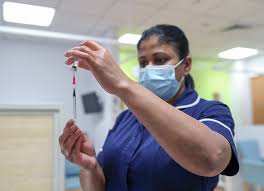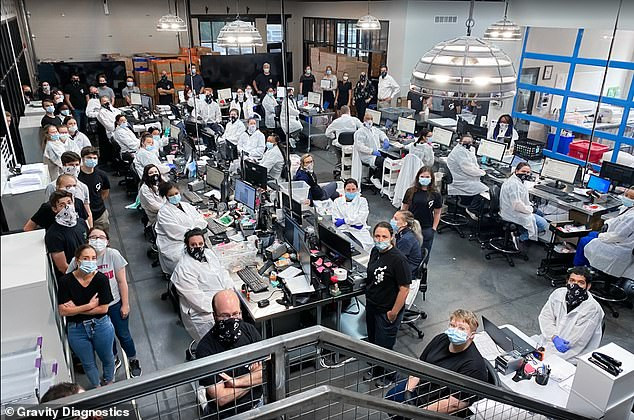Pfizer’s Covid-19 vaccine candidate offers some protection after the first dose, with nearly full protection after the second dose, according to documents released Tuesday by the Food and Drug Administration.
The information was made public before a meeting Thursday of the Vaccines and Related Biological Products Advisory Committee, or VRBPAC — an advisory group to the FDA that will vote on whether to advise the agency to grant emergency use authorization of the vaccine in the U.S.
The 53-page document contains analysis from both federal regulators and Pfizer on the latest data from the company’s Phase 3 clinical trial on its Covid-19 vaccine. It will be used to help guide the advisory group in its decision-making.
“I think we can be confident in the findings of this trial,” Dr. William Moss, executive director for the Johns Hopkins Bloomberg School of Public Health International Vaccine Access Center, said. Moss noted the diversity of the trial participants, with “representation across ethnic and racial groups, comorbidities and age.”
Dr. Greg Poland, director of the Mayo Clinic’s Vaccine Research Group in Rochester, Minnesota, said that based on the information provided in the document, he could “see absolutely no reason why this emergency use authorization would not be granted.” Neither Poland nor Moss is involved in Pfizer’s vaccine trials.
The Pfizer vaccine calls for two doses, three weeks apart. In November, Pfizer said early results from its Phase 3 clinical trials showed that two doses appeared to be 95 percent effective in preventing symptomatic Covid-19.
The new information shows it has benefits even after the first dose, with an effectiveness of more than 50 percent about a week later. While useful, Poland said it will be important to follow through with that second dose to “significantly boost the immune response.”
“The concern is that after a single dose, people would think ‘I’m home free.’ That would be the wrong message,” Poland said.
The vaccine’s overall effectiveness seems to be the same across all age groups, racial and ethnic minorities, and people with underlying conditions, such as obesity, diabetes and high blood pressure.
Both Poland and Moss called the data “a grand slam.”
“We do not have good examples of vaccines with this level of efficacy across age, gender, race and comorbidities,” Poland said. “I’ve never seen something like this.”




